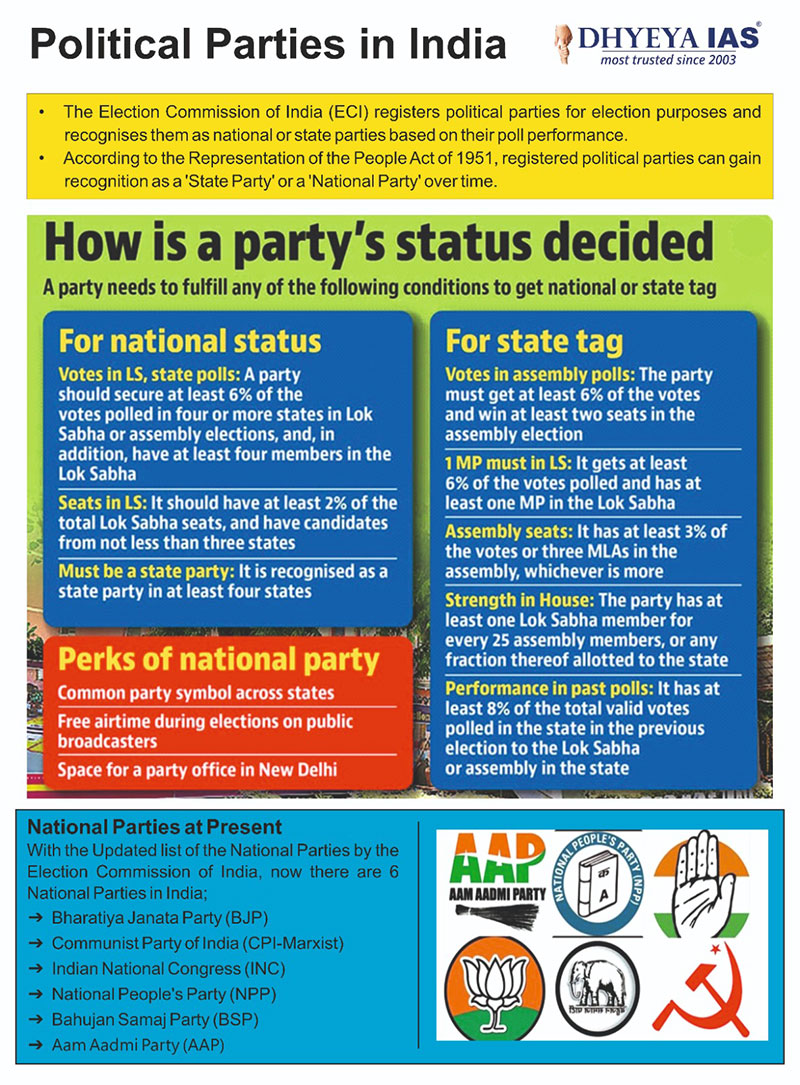
The Election Commission of India (ECI) registers political parties for election purposes and recognises them as national or state parties based on their poll performance.
According to the Representation of the People Act of 1951, registered political parties can gain recognition as a ‘State Party’ or a ‘National Party’ over time.
How is a party's status decided
A party needs to fulfill any of the following conditions to get national or state tag
For national status
- Votes in LS, state polls: A party should secure at least 6% of the votes polled in four or more states in Lok Sabha or assembly elections, and, in addition, have at least four members in the Lok Sabha
- Seats in LS: It should have at least 2% of the total Lok Sabha seats, and have candidates from not less than three states
- Must be a state party: It is recognised as a state party in at least four states
Perks of national party
- Common party symbol across states
- Free airtime during elections on public broadcasters
- Space for a party office in New Delhi
For state tag
- Votes in assembly polls: The party must get at least 6% of the votes and win at least two seats in the assembly election
- 1 MP must in LS: It gets at least 6% of the votes polled and has at least one MP in the Lok Sabha
- Assembly seats: It has at least 3% of the votes or three MLAs in the assembly, whichever is more
- Strength in House: The party has at least one Lok Sabha member for every 25 assembly members, or any fraction thereof allotted to the state
- Performance in past polls: It has at least 8% of the total valid votes polled in the state in the previous election to the Lok Sabha or assembly in the state
Number of National Party at Present
With the Updated list of the National Parties by the Election Commission of India, now there are 6 National Parties in India;
- Bharatiya Janata Party (BJP)
- Communist Party of India (CPI-Marxist)
- Indian National Congress (INC)
- National People’s Party (NPP)
- Bahujan Samaj Party (BSP)
- Aam Aadmi Party (AAP)
